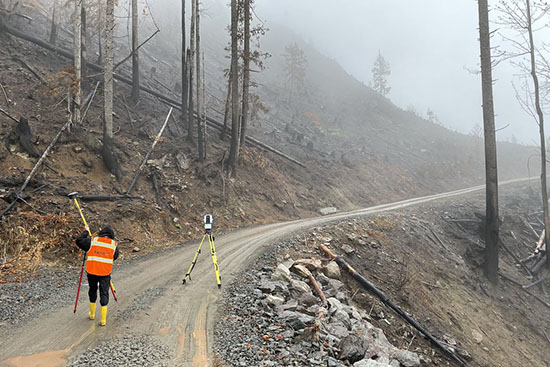May 29, 2024
The grant enables the RAPID center to enhance its research on the intersection of engineering and public health, focusing on long-term health outcomes from disasters.

A researcher uses RAPID monitoring technology to collect data in the aftermath of Washington’s Bolt Creek wildfire in 2022. Photo courtesy of RAPID center.
The Natural Hazard and Disaster Reconnaissance Facility (RAPID) has been awarded a substantial grant by the National Institutes of Health (NIH). The grant, amounting to $1.5 million annually, marks a new chapter in the center's efforts to integrate engineering and public health research in the aftermath of natural disasters.
CEE Professor Joseph Wartman, Director of RAPID, expressed excitement about the grant, highlighting its potential to change our understanding of the impacts of natural disasters on public health.
The new NIH grant effectively doubles RAPID's budget, allowing for the acquisition of more sophisticated equipment and the addition of two new staff positions. It also paves the way for new kinds of research into the long-term health outcomes for communities affected by disasters. Such initiatives have been challenging in the past due to a lack of integration between engineering data and public health impacts.
One critical area of focus will be the aftermath of wildfires, a frequent and devastating hazard with far-reaching effects on environmental and public health. The RAPID team, in collaboration with public health researchers, plans to study groundwater contamination, smoke inhalation effects and other health-related consequences of such disasters.
Wartman says that covering countless natural disasters with the center made him reflect on some of their less obvious effects.
“As I've observed the aftermath of disasters, the profound impact on communities through health lenses became undeniable,” he says. “It highlighted a vital aspect we were missing in our research scope. This grant is a significant step towards bridging that gap."